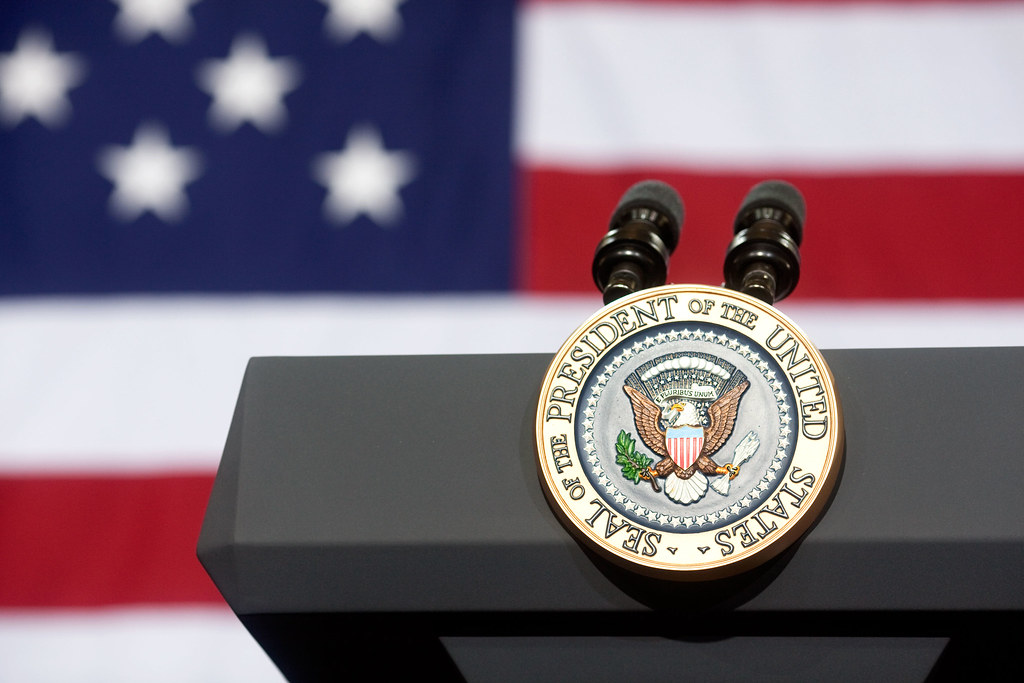I will admit that I wasn’t prepared for the emotional response I experienced upon reading President Biden’s letter announcing his decision to turn down renomination this week. I was really moved. Upon reflection, what touched me most was the rarity of witnessing the most politically powerful person in the world acknowledge his limitations and, after some reluctance, ultimately volunteer an act of profound sacrifice for what he perceived to be the greater good. While I’m used to stories of sacrifice from soldiers, first responders, and even everyday people, this kind of story isn’t one most of us encounter frequently.
“Of all the rituals relevant to democracy, sacrifice is preeminent,” writes the contemporary political theorist Danielle Allen. “No democratic citizen, adult or child, escapes the necessity of losing out at some point in a public decision.” (Talking to Strangers: Anxieties of Citizenship since Brown v. Board of Education, 28) Allen notes that while it is essential that sacrifice be distributed equitably—that is, that one or a few groups not bear a disproportionate share of the burden of sacrifice—at bedrock, democratic life depends upon the willingness and capacity of every citizen, from the most humble to the most powerful, to be able to sacrifice their desires for the greater good. It happens every time the losing minority concedes a vote in a legislature or an election (something we have learned cannot be taken for granted). That, it seems to me, is one of the things Alexis de Tocqueville meant when he wrote about the habits of the heart necessary for democracy.
Such habits are fundamentally spiritual things. As the list of communal sacrifices in Parshat Pinchas reminds us (Numbers 28), sacrifice is central to the spiritual life described in the Torah. And while we do not bring animal sacrifices anymore, the gesture of sacrifice itself—the willingness to give up something we own, want, or even love for the sake of a greater good—remains central to our spiritual life today. It is what we practice through mindfully surrendering our workday lives over Shabbat, our wealth through tzedakah, our dietary desires through kashrut. The point of so many of the mitzvot is to condition us to the awareness that we are indeed part of something much larger than ourselves—and, by practicing them, to nurture within our hearts the ability to sacrifice for a greater good.
Just before the list of sacrifices, the Torah tells the story of the Jewish people’s first transition of power. “YHVH said to Moses, ‘Ascend these heights of Avarim and view the land the at I have given to the Israelite people. When you have seen it, you too shall be gathered to your kin, just as your brother Aaron.” Moses pleads with God to appoint a new leader, someone who “will go out before them and come in before them, who will take them out and bring them in.” God tells Moses to take Joshua and place his hands on him in front of all the people, and in doing so, to invest him with authority. And that’s what they do.
Commenting on Moses’s description of the leader as one who goes out before the people, Rashi, quoting the Midrash, elaborates: “Not as is the way of kings who sit at home and send their armies to battle, but as I, Moses, have done,” leading the people personally, with my own body on the line. At this profound moment of transition, Moses grounds the function and authority of leadership in the willingness of a leader to sacrifice through personal example—and, in so doing, to inspire meaningful, life-affirming sacrifice among their flock.
President Biden would probably be the first to say, “Don’t compare me to Moses.” I don’t mean to make him a saint (in any case, that’s the business of the Catholic Church). And I don’t mean to offer a political endorsement (in any case, he has taken himself out of the race). But in my lifetime, this is one of the more remarkable moments of leadership and sacrifice I have witnessed. No matter our political persuasions, I hope it can inspire in all of us an appreciation of the importance of the spiritual habits of the heart, and help renew within us the capacity and willingness to sacrifice for the greater good.

